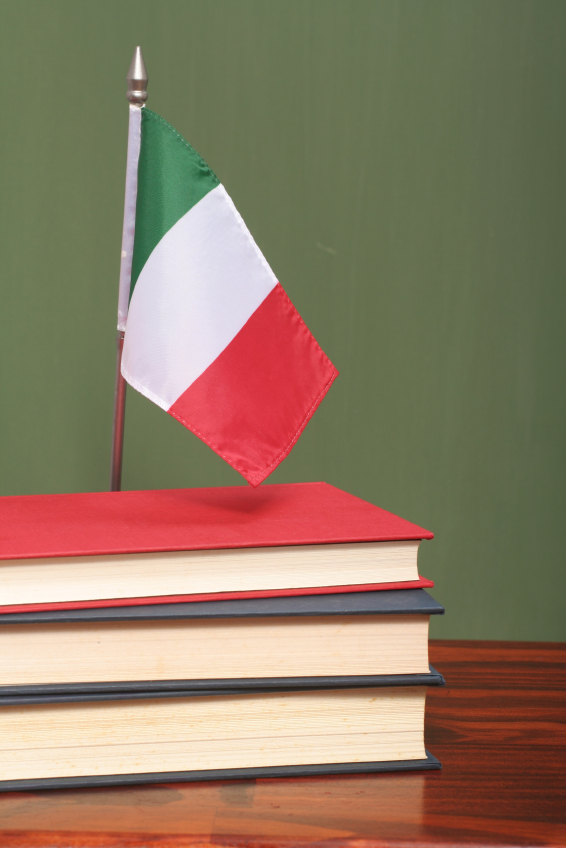Higher Education in Italy

Educational system
There are approximately 89 universities in Italy and a number of other higher learning academies and institutions. While there is a mix of public and private institutions, there are mainly state run universities managed by Italy’s Ministry of Education. Of all the institutions 76 are public, 16 are private and 1 is a jointly public-private institution. Approximately 50% of Italian youths enter higher education. A look at the ratio of men to women who access higher education in Italy shows that young people 25-34 years old account for 16% and 25% respectively. In OECD countries, Italy has the highest percentages of advanced research qualifications. By OECD standards, they rank 31st in public expenditure on education and 24th for financial investment in education out of 37 countries.
State Universities
Owing to the fact that State Universities have the full backing of the government, they are fully equipped with the relevant management and accounting facilities necessary for autonomous control over their own affairs. These universities are mainly steeped in disciplines that are concerned with higher education and scientific advancement. These universities are the largest institutions and have affiliate or smaller universities that offer programs that are accredited by the State Universities. Of the approximately 89 higher learning institutions, 55 are state universities. These universities are normally named after the city or region in which they are located. There are several affiliate schools which offer qualifications in conjunction with the independent or state run universities
Superior Graduate Schools Scuola Superiore Universitoria
These are the institutions of higher learning which focus on advanced level programs exclusively by offering postgraduate education qualifications; that is, they offer Doctorate and Masters programmes. There are three Superior Graduate Schools with complete university status. These offer Master’s courses independently. Those without recognized university status offer courses jointly with recognized university and are referred to as Schools of Excellence, Scuole di Eccellenza.
Technical Universities
There are three Status of Doctoral Colleges also referred to as technical universities, which offer graduate and post graduate qualifications, and nine offshoots or affiliate schools.
Degrees
Though Italy is typically known for its educational offerings in Engineering, Law, Economy, Art and Architecture, all five common disciplines offered at universities across the globe are offered in Italian institutions of higher learning. Within Italy’s education system, the length of study is impacted by variables such as the level of studies, the area of study, and the type of school. For instance, a Masters degree may be completed in two years and depending on the type of Doctorate, your course of study could range anywhere from three to five years. If you wish to pursue studies in Sciences of the Primary Education it is imperative that you study for three to five years. It takes about five years to complete your studies in Pharmacy, Chemistry and Technologies of Pharmacy. The same time requirement applies if you want to pursue a career in Veterinary Medicine, or if your dream is to become a lawyer or an architectural engineer. You must complete six years of study to be eligible to practice surgical medicine or dentistry.
Health
A degree in the faculty of Health prepares you for a career in dentistry, pharmacy, surgical medicine as well as nursing. If you want to be a therapist this is the faculty you need to enrol under.
Humanities
For those interested in being qualified to work in the fashion or entertainment industry, or those who want to be considered as authorities on cultural studies, Humanities is the faculty which offers the degrees for that. Under this faculty you also have the option of gaining classical knowledge of languages, so you may become a linguist or translator.
Sciences
You have the opportunity to select a discipline within the field of pure and applied sciences. If you are interested in agriculture, environmental studies, or want to be a statistician, this degree is for you.
Social Studies
This area prepares students for administrative posts in various sectors, business, law, economics and sports. Those who want to gain certification for work within the tourism sector or in international relations as well as social work, should enrol under this faculty.
Technology
Those who are desirous of being formally educated as a civil or industrial engineer and architecture, can do so under this faculty. Once you have an affinity for the technical areas such as land surveying, urban planning and other vocations such as machinist and mechanics, a degree in Technology will be right for you.
Admission Requirements
For undergraduate studies, also referred to as first cycle, students who have successfully completed upper secondary education and have a certificate to show, are eligible for admission.
Once you have a Bachelor’s programme certification or it’s equivalent, you are eligible for enrolment in a Master’s programme also referred to as the second cycle.
A valid Master’s credentials makes you eligible for acceptance to the Doctoral (PhD) programme which is also known as the third cycle.
